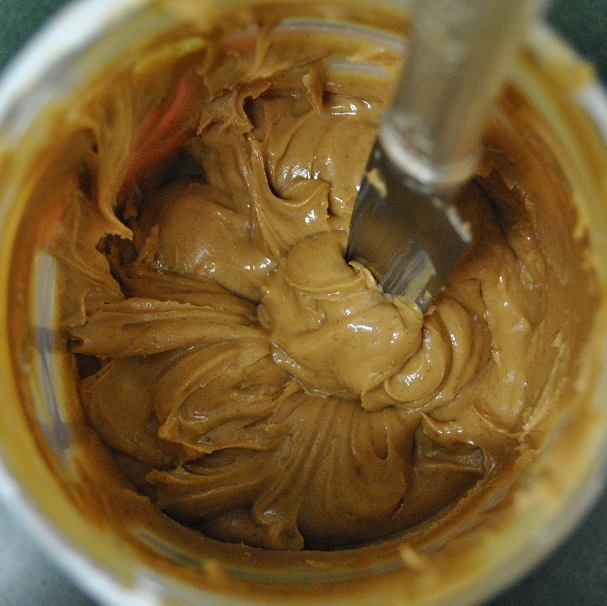Article and audio introduction by Samantha Kennedy, Family and Consumer Sciences
One of the most versatile, nutritious, and shelf-stable foods out there is peanut butter. Thought to be first invented by the Inca in ancient times, a version of peanut butter was developed in the United States in 1895 by Dr. John Harvey Kellogg (of cereal fame). It was first introduced to a wider public audience at the St. Louis World’s Fair in 1904. Since then, it has grown into one of the most popular foods in the country.
Peanuts and peanut butter were integral parts of the Armed Forces rations during both World War I and World War II, due to their nutrient density and ability to be stored for long periods of time. It is widely believed that the iconic peanut butter and jelly sandwich became popular with American soldiers during World War II.
According to the National Peanut Board, Americans eat more than six pounds of peanut products per person each year, more than half of which is in the form of peanut butter. Peanut butter is popular for its flavor, versatility, low cost, and nutritional value.

Peanut butter is an excellent source of protein, with more than 7 grams per 2 Tablespoon serving. It is in the same food group as meat and beans, which are other great sources of protein. Since peanut butter is made from plants, it contains no cholesterol. And while it is relatively high in fat, most of the fat is unsaturated, making it a healthier choice. Peanut butter is also a good source of the B vitamin Niacin, which is important for the function and development of the cells in our body.
The versatility of peanut butter makes it a favorite among chefs. From savory peanut sauce to scrumptious cookies and pies, peanut butter makes a terrific addition to many meals from breakfast to dessert.
Unopened, commercial peanut butter has a shelf-life of about two years. Once opened, peanut butter will last up to three months in the pantry. “Natural” peanut butter, which contains only peanuts and salt and no added oils or sugars, has a much shorter shelf-life of about one month after opening. All peanut butter can be stored in the refrigerator after opening to extend its shelf-life.
Over time, peanut butter will separate and a layer of oil will pool on top of the peanut solids. If this happens, the peanut butter is still safe to eat. Simply reintegrate the oil into the peanut butter by giving it a good stir. Storing natural peanut butter upside down is a neat trick for preventing it from separating. Just remember to open the lid slowly before using to prevent an oily mess. Storing peanut butter in the refrigerator will also help prevent any separation.
Starting October 1, UF/IFAS Wakulla County Extension will be participating in the Peanut Butter Challenge. We will be collecting donations of unopened jars of peanut butter at our office. One pound jars are preferred, but all donations are welcome. At the end of the challenge, all donations will be matched by the Florida Peanut Producers Association. All the peanut butter will then be distributed to local food pantries to help feed families in need.
Please drop off all donations at 84 Cedar Avenue in Crawfordville anytime between 8:00am and 5:00pm, Monday through Friday.
For more information, please contact Samantha Kennedy, Family and Consumer Sciences agent, at (850) 926-3931. To learn more about peanut production and to find yummy recipes, please visit the National Peanut Board.
UF/IFAS is an Equal Opportunity Institution.
 0
0
